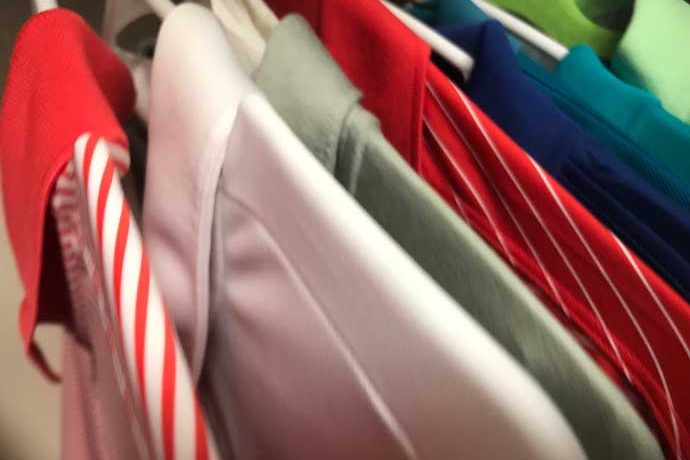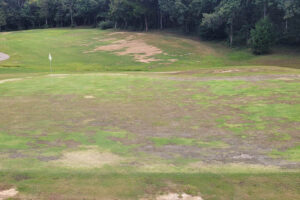That polyester shirt is an environmental menace
If you want to save the planet, you gotta change your shirt, say the founders of Radmor Golf, which is taking a radical approach to manufacturing and merchandising golf apparel.
That synthetic-fabric golf polo in the swag bag at your last golf tournament? It’s just as bad as those plastic water bottles that are choking whales and polluting our rivers, streams, oceans and beaches.
In fact, it’s polluting you, too.
Every time you wear or wash that shirt – which was made from oil, by the way – you’re shedding microfibers, tiny bits of polyester thread – into the environment.
The more you wear or wash that shirt, the more microfibers break off and find their way into our water supply. They can break into particles as small as a nanometer, but those polyester particles will never degrade. They will always be plastic. Forever.
Americans ingest an average of a credit card’s worth of plastic – 5 grams – each week, according to an Australian study. That’s just over a half pound each year. We excrete most of that, but some stays behind in our organs. Researchers have even found plastic micro particles of plastic in the placenta of newborn babies.
Scott Morrison and Bob Conrad, co-founders of a 2-year-old Seattle company, Radmor Golf, want to change that.
Their company makes golf apparel from Pima cotton from Peru, the best cotton in the world. They use polyester only when a garment needs elasticity or water-resistance, and even then they use only recycled polyester.
“This is something we have a passion about,” Bob Conrad said in an interview. “We wanted to do something disruptive, something sustainable, so we settled on Pima cotton from Peru. We never liked polyester. We said we’re going to use natural fibers no matter what.”
That commitment to reducing polyester pollution includes a promise to take back through the company’s recycling program – which they call “Rad-cycling”– any of their polyester-containing products to keep it out of the landfill.
While other companies are coming around to adding “sustainability” to their manufacturing processes, “No one is talking why we’re walking around wearing plastic outside our bodies,” Conrad said.
Polyester is a generic term that covers a family of petroleum-based fabrics first developed by Dupont in 1926. That family includes Lycra, commonly known as spandex, elastane, Dacron, nylon and acrylics. All of these fall in the category of synthetic fabrics that Radmor wants to eliminate from our environment.
Radmor Golf distributes its apparel through its two Seattle retail outlets, at 30 to 35 golf courses, and via the online retailers Huckberry and Fairway Styles, Conrad said.
Their polos sell for $95 to $115 in golf shops, which puts them at a disadvantage compared to cheaper polyester. “Some golfers just want a cool shirt, not so much a sustainable shirt, but we hope to educate them,” Conrad said.
In the 1990s, the two men played on the University of Washington golf team. After graduating in 1995, Conrad tried his hand on tour, while Morrison plunged into the apparel business, joining Paper & Denim Cloth, an upscale denim clothing company.
After reconnecting a few years ago, Morrison asked Conrad to organize a golf tournament. Both men complained about the “crappy polyester” that was in the event’s swag bag, and the idea for their company was born.
In their research, they were shocked to learn that on average, Americans send about 75 to 80 pounds of polyester per person each year to the landfill. A deeper dive revealed polyester’s calamitous effect our water supply and food chain.
“We want 95 to 100 percent of our product line to be biodegradable,” Conrad said..
So, you’ve been warned. if youyou don’t want to turn into a walking, talking plastic person, check out their apparel line at Radmor Golf.
Dan Vukelich is the editor of Alabama Golf News
Have a story idea or a news item to report? Email bamagolfnews@gmail.com
.







